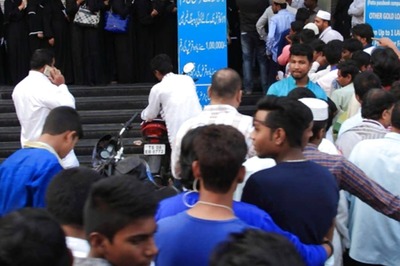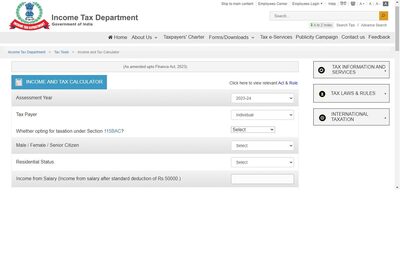
views
New Delhi: Grief can bring out a myriad of emotions. It can make you teary-eyed, it can make you depressed. In some rare cases, even if you are grief-stricken, you can manage to smile. That’s what happened with me when news first broke of Atal Bihari Vajpayee’s demise.
The 15th of August was anyway going to be a very long day, beginning at 7am with reporting and analysing Prime Minister Narendra Modi’s Independence Day speech.
Around 10 in the night, we started getting indications that all wasn’t well with Atal ji. And when I heard that PM Modi had himself visited the ailing pitamah (patriarch) at AIIMS, I felt a sudden burst of energy just when I was about to call it a day. I went back to the studios and again reported and analysed till midnight. That’s what Atal Bihari could do to you even when he has been away from the public eye for over a decade.
I first had the chance to meet Mr Vajpayee as a young reporter towards the end of 2000. His blue-eyed boy Pramod Mahajan and I got along well. In the pre-Twitter era, it was easier to make friends with politicians. Pramod ji and Atal ji were supposed to go to a function in the capital. Pramod ji casually asked me, “Your boss keeps telling me he wants to meet Vajpayee ji. Dont you want to meet him too?”
Of course, I thought he was pulling my leg and if I said yes he would call up my editor, who belonged to his state, and would and tell him “tera ladka bada tez hai” (Your boy is quiet sharp). But after a brief pause, I obviously said yes. Pramod ji took me with him. At the function, he introduced me to Atal ji as the boy from Benares. And Vajpayee simply said “Haan Benares mein Chaubey paan bhandaar hai” (yes, Benaras has a Chaubey paan shop), and burst out laughing.
From that day onwards, I found myself caught in a unique bond with him. Whatever may happen politically, I was convinced Atal ji couldn’t take a wrong step. Between 2000 and 2004, the NDA was a house vertically split. There were those sided with the Vajpayee camp and those who were in the Advani camp, including journalists.
While I kept myself from being identified with either camp, stories were always abuzz about how Vajpayee was unhappy with Advani or vice versa. But two instances convinced me that Atal became a legend also because of the work put in by Advani.
While Vajpayee was referred to as Baapji by his family members, Advani was referred to as Lalji by his inner circle. I remember asking Jaswant Singh, a key aide of Vajpayee and as erudite as they come, about the real nature of the Atal-Advani equation. His response was, “They are two sides of the same coin. They hate each other as much as they love each other.”
Over numerous meetings and several cups of tea, Jaswant Singh would often talk to me about Atal ji’s poetry. “Atal ji has this unique habit of using pain in words to make you feel happy about your life. An art of using pain of words to inspire you.”
In an interview that Vajpayee had done with author Tavleen Singh sometime in 1998, he admitted that he loved “songs and poems of pain”. Yet, cynicism and Vajpayee were poles apart.
In 2004, after losing the elections, Atal ji went to Manali for his annual summer break with the family. His foster daughter was a good friend of mine. There were two or three reporters, including yours truly, who reached there before Vajpayee could.
I was now convinced that I was going to get a scoop from Vajpayee since this would have been the first time he was appearing in public post his government’s exit. The moment he came out of the chopper, our cameras started to roll. He admitted that one key reason for the BJP’s loss in 2004 were the events of 2002 in Gujarat. It became a big headline and I felt very happy having got that story out first. But the next day, I saw that another reporter who hadn’t made it to the spot in time ended up getting a far bigger exhaustive interview with Vajpayee simply by convincing the former PM that his job depended on getting that exclusive.
That interview created a mini storm of sorts within the BJP. I had to now outdo the rival. I waited for my turn again. Two days later, Atal ji was to travel to a local school in Manali for a function. There he was, looking all majestic on a stage that was set up at a height. In between the function itself, I interrupted him, and started asking him questions while our camera was rolling. If it were any other politician, I am certain I wouldn’t have got any answers. Perhaps his daughter had informed him of my anger at not being given the elaborate interview or maybe he just wanted to talk. But I am absolutely certain that not one politician in India would bother to answer questions the way he did bang in the middle of a public function at a time when political heat around him was climaxing.
We spent that week in Manali enjoying the sights and sounds. Much later, when I managed to see him for a rare appearance, the only question he asked me was “did you enjoy the pizzas in Manali?” And then exactly the way he had laughed when Pramod ji first introduced him to me, he burst out laughing.
We will miss you Atal ji. To your democratic spirit, may you rest in peace.


















Comments
0 comment